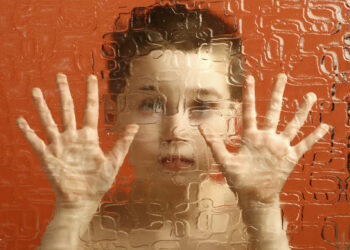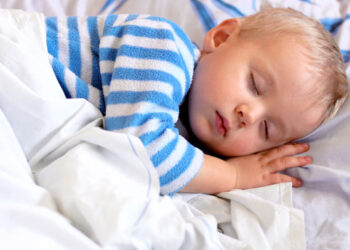Meningitis
Bacterial meningitis is a medical emergency and needs prompt treatment to avoid serious neurological damage or even death. Meningitis in children can be due to either viral or bacterial infection.
IF THERE IS ANY POSSIBILITY OF A CHILD HAVING BACTERIAL MENINGITIS TREATMENT SHOULD BE STARTED STRAIGHT AWAY.
The focus of this article and video will be on bacterial meningitis, the organisms that cause it, the signs and symptoms, treatment and the outcome for affected patients.
Meningitis reflects infection and inflammation of the lining of the brain & spinal cord (this tissue is called the leptomeninges which is where the term “meningitis” is derived from). Note that this is different from meningococcal sepsis or menigococcal septicaemia which, although may be caused by an organism which causes meningitis, actually refers to a particular bacteria (Neisseria meningitides) growing in the blood stream. Meningococcal sepsis will be covered separately.
The peak incidence for meningitis is in children under 2 months of age.
There are four main groups of organisms that cause meningitis: Group B streptococcus, gram negative bacilli, Streptococcus pneumoniae and Neisseria meningitides. The likelihood of a particular organism causing meningitis varies with age:
- between 1 month & 3 months: All four organisms can cause meningitis
- between 3 months & 3 years: Streptococcus pneumoniae, Neisseria meningitides, Group B streptococcus, Gram negative bacilli.
- between 3 years & 10 years: Streptococcus pneumoniae & Neisseria meningitides
- between 10 years & 19 years: Neisseria meningitides
Signs & symptoms
Symptoms usually start with an upper respiratory infection in the vast majority of cases and can then either progress very rapidly over the space of a few hours or take a day or two to develop.
Signs of meningitis can vary with age:
Infants may present with some of the following symptoms:
- Poor feeding,
- High fever or even low temperature
- Rapid breathing
- Irritability
- Restlessness
- Vomiting
- Diarrhoea
- Seizures
- Rash or spots
- Bulging fontanelle (this is the soft spot on the head in babies).
Older children may present with:
- Fever
- Headache
- A dislike of the light
- Vomiting
- Confusion
- Irritability
- Neck stiffness
Note that many parents place a lot of emphasis on the glass test and although this is useful for a particular type of meningitis (where the disease has evolved into meningococcal septicaemia) sometimes the rash only appears late on or not at all.
You know your child better than anyone, if your instincts tell you that your child may have symptoms of meningitis, seek medical help straightaway, DO NOT DELAY SEEKING MEDICAL HELP.
Treatment
Treatment consists of antibiotics which are either given by intramuscular or intravenous injection. If a GP suspects that a child that they are seeing has meningitis or septicaemia they may give an intramuscular injection of an antibiotic so that treatment is initiated before a child gets to hospital.
Once in hospital the child will need an intravenous line to administer antibiotics and also to take some blood tests. A lumbar puncture will also be performed if it is felt that it is safe to do so.
Once antibiotics are started they are usually continued for 2 – 3 weeks (depending on the bacteria causing the symptoms).
Prognosis & follow up
The overall mortality for infants and children is approximately 5% but neurological complications such as deafness, poor development, spasticity and seizures occur in 15-25% of survivors. Children who have been treated for meningitis should undergo hearing testing shortly after discharge. It is also important to follow up their development in an outpatient setting.
The following link also provides useful information and support around meningitis: Meningitis now



